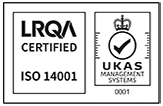
Electric cars are unquestionably a step in the right direction for decarbonisation and a greener future. And with a ban on new petrol and diesel cars coming to the UK in 2030, electric vehicles will be an inevitable part of our lives. But to maximise their benefits, the electricity they use must be ‘clean’ too.
Where does electricity for electric cars come from?
In most cases, the electricity needed to power electric cars comes from the national grid. Power comes from the same sources as the rest of the electricity you use, which is increasingly greener and on track to be 100% zero-carbon by 2050. But there is also a slow but increasing move to self-generation systems where households generate their own power from solar or wind. The energy is stored in a battery then used to heat homes and charge cars.
Self-generating systems aren’t the only innovation to support a transition to electric vehicles. There are also advances in vehicle-to-grid technology, where a driver can return excess energy from electric car batteries to the electricity network during peak times.
Can the UK cope with increased demand for electric car power?
Analysis from Cambridge Econometrics found that a move to electric vehicles would add only 10% to overall UK electricity demand. This suggests that concerns about the grid not coping with a switch to electric cars are unsupported. However, the research indicates that commuter patterns could strain the system if drivers all charge their vehicles after returning home from work in the late afternoon. This issue could be addressed by changes in post-pandemic working patterns – including more home-working – along with broader trends away from the grid towards self-generating systems.
Work is ongoing elsewhere in the industry to ensure the country is ready for the transition. There are exciting charging innovations, including pioneering work by the national grid exploring electric cars’ potential to be charged dynamically by electric layers beneath the road surface.
Pushing for greener electricity
Self-generating systems and innovations are unlikely to replace the grid entirely. And so the UK must continue to move away from fossil fuels to generate power. Today, most of the UK’s electricity is still produced by burning natural gas, a fossil fuel. Thankfully, we’ve moved away from coal-generated power, and we are increasingly dependent on clean electricity from Norway, which is 100% zero-carbon.
The role of Energy from Waste
Here in West Sussex, we’re doing our bit to generate clean energy too. Ten years ago, our Energy from Waste plant started producing green electricity from non-recyclable waste in our skips. It’s capable of converting the contents of an average skip into enough energy to power a home for three weeks. Energy from Waste plants like ours are undoubtedly part of the UK’s energy future, as well as being a system that simultaneously tackles a growing waste problem. And in the future, it will help power the vehicles on our roads too.
To find out more about skip hire in West Sussex and our Energy from Waste facility, contact Rabbit. Reach us on 01903 762020 or email info@rabbitgroup.co.uk.




